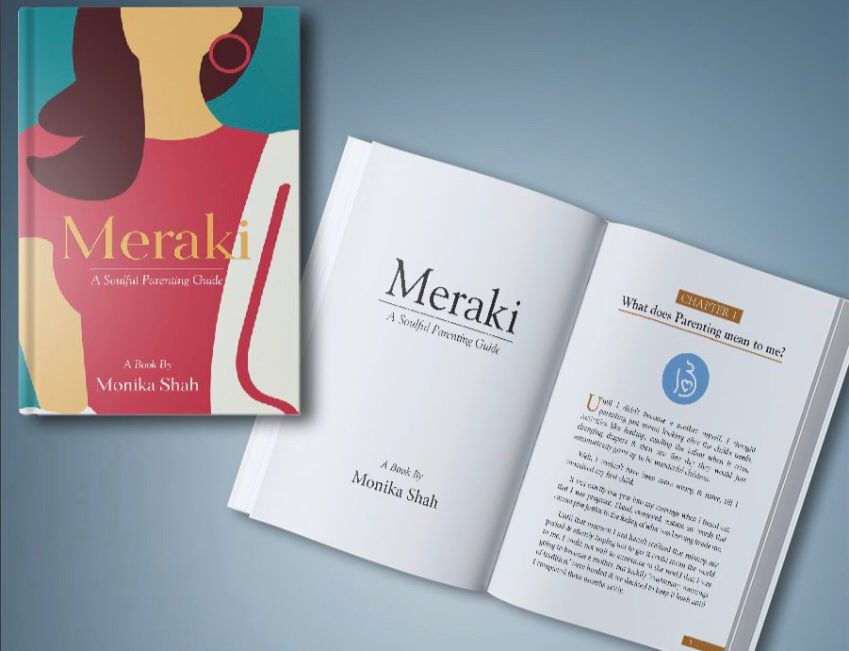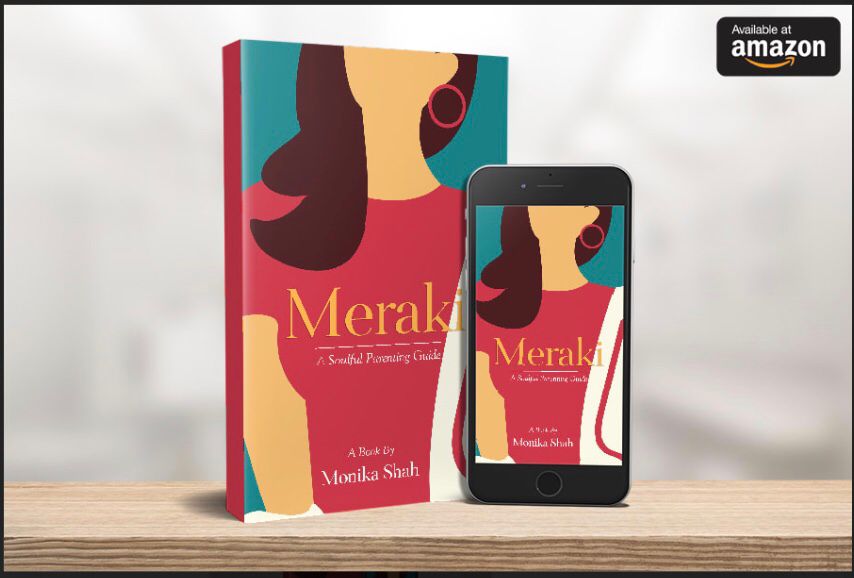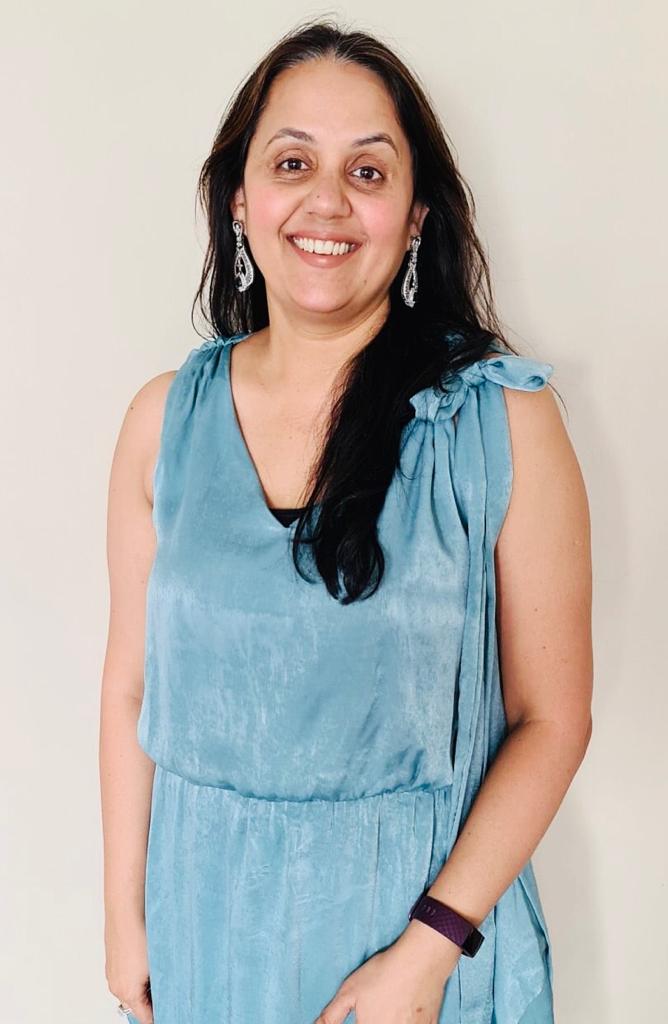With some insight from the author, Monika Shah
By Khushi Shah
Monika Shah, a mother of two and a member of the Gujarati Jain community, is originally from Mumbai, India, but has lived in Bangkok for the past 25 years. She was a teacher of Jainism before becoming a poet, and she published her second book, Meraki, earlier this year.
Written fully from the author’s heart, the book is about parenting 101 but rather than giving generalised words of wisdom, it follows Monika’s own journey from becoming a mother, to experiencing her kids transforming into young adults. The writing is eloquent and crafted beautifully, with personal anecdotes and inspirational quotes at the end of each chapter. I personally loved how the author was not afraid to be raw and authentic with her emotions, and to scrutinise her flaws and mistakes in motherhood. While many mothers in our desi community are working 9-5 jobs, hosting exhibitions, baking/cooking, or managing households, I found Monika’s passion for writing unique, so I picked up this book to learn more about her journey. Despite not being a parent myself, it was definitely a worthwhile read, as a lot of advice she gave resonated with me, and my relationship with my parents.
Upon first glance, I was intrigued by the titles of each chapter. They were extremely creative and foreshadowed the discussion in that section, with headings like, “Wish kids came with a remote control”, “The length of the dress is an everlasting battle”, and “Why do children lie to us”. It was like entering an unknown kitchen and coming out as a chef – with every story, there’s a new recipe to learn.
Monika begins by talking about her initial days of becoming pregnant; her nausea, morning sickness, and pain. I loved her assertion that, “when anyone is sharing their pain, don’t rush to normalise it.” While basic, there was just so much depth and power to those words. In today’s chaos, we’re always trying to stay positive and move on from the blues, but in reality it’s okay to take your time and grieve.
Next, she sheds light on how parents suddenly behave like reckless drivers to make their kids superheroes overnight, whether it’s in taste bud exploration, potty training, or learning how to walk. And once the toddler has grown a little older, they get the urge to enrol them in all sorts of classes, from academics, to dance, sports, religion, and more. Monika explains that while it’s vital to let kids try a variety of activities to figure out their potential and ambition, sometimes it’s better to hand over the choice to the child and let them learn and develop at their own pace. Oftentimes, parents get worked up and impose their dreams/goals upon their child, which can put unnecessary pressure on them. She then dispenses advice on knowing your children’s friends, and how parents should take the initiative to accept and be open-minded towards them, in order to understand their children’s generation best.
Monika also opens up a discourse on the dress code that parents expect their kids to follow, especially ones with daughters. She gives advice on how parents and children have to come to a middleground when there’s a crossroad of opinions, as otherwise, we’re diving into a pool of misunderstandings, arguments, and chaos. This section was my favourite, because the way she elucidated her feelings was extremely relatable for girls and women everywhere.
Lastly, the book closes off with topics like why kids lie, exhaustion on the side of both the parents and the kids, and children leaving the nest to face the real world, whether it be school or college. She brought up a meaningful point that sometimes parents have too many questions but don’t have the stomach to handle our answers, while on our part, we should also understand the burden of worry that our parents carry. I got a little sentimental towards the end, because it’s true that time flies and we’ve outgrown our parents’ laps. It was bittersweet!
While it has some blunt truths, the book doesn’t target parents or children, but is rather an amalgamation of Monika’s learnings, ways she’s adapted, and her personal touch. Even though the target audience is parents, I felt like Monika treated each story like a two-way street, analysing things from the point of view of both parents and teenagers. Additionally, the language she used was very colloquial, so all age groups can fully comprehend it. The aesthetics were also done perfectly, with the right amount of visuals that didn’t overpower the content, but rather gave it dimension.
An easy read, the book is 48 pages long and consists of 21 short chapters. If you’re looking for a quick pick-me- up, contact the author directly for the physical copy, either on Instagram (@WordsByMonika) or via WhatsApp at +66 89 069 0702. Online copies are available on Amazon.
We reached out to Monika to ask about the inspiration behind her book.
What inspired you to write this book?
My daughter turned 21 this April, and I wanted to give her this book as a present.
Someone had asked me, “what are you most passionate about?” and I said parenting – not as a profession, but rather, that I enjoyed raising my children up, making sure they turned into strong and good adults, and sharing with them my failures and success. Thus, Meraki was a product of all those experiences. What does the title mean?
‘Meraki’ is a Greek word for something done so passionately that it leaves an impression. Whatever I leave with the kids, they will carry it forward. The word manifests doing something with love, soul, and creativity, and putting ‘something of yourself’ into it.
What is your favourite and least favourite thing about this book?
Least: I wish I could’ve written more, but because I had to launch it on the day of my daughter’s birthday, I couldn’t elaborate on my thoughts further. The book has 21 chapters, which is the age she turned this birthday.
Favourite: It came out very natural and honest; I’ve not hidden my wrongdoings or mishaps but rather kept it organic for the readers. I’ve not twisted or turned words around to make myself look better because that would ruin the entire point of this piece.
What advice do you have for other writers?
Whatever your message is, keep it short, concise, and simple. Using flowery language won’t help the message come across well, just be honest and to the point.
Where did you get your ideas/motivation?
The values, beliefs, and principles stemmed from my own parents, but making shifts with time, freedom, lightheartedness, and open-mindedness was something I adapted to with my kids’ generation. A lot of the story is a reflection of my moments, learnings, and things I learnt from others too.








